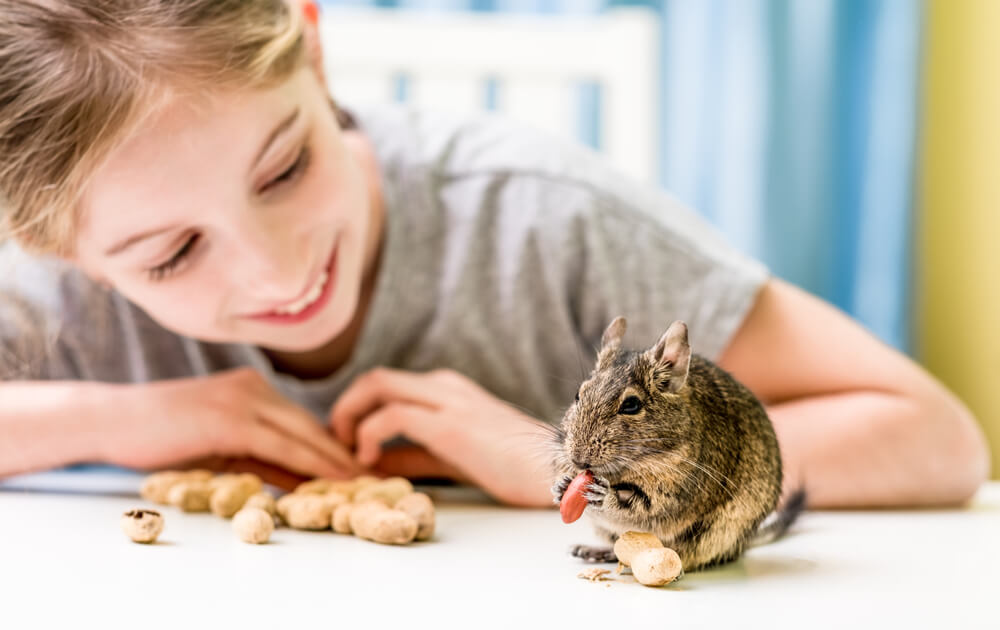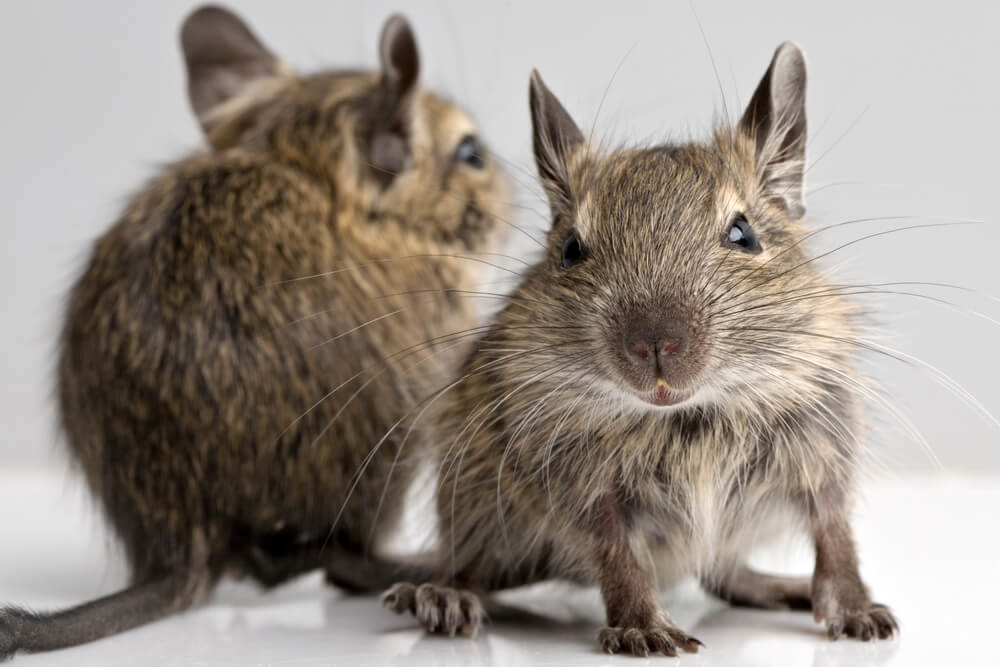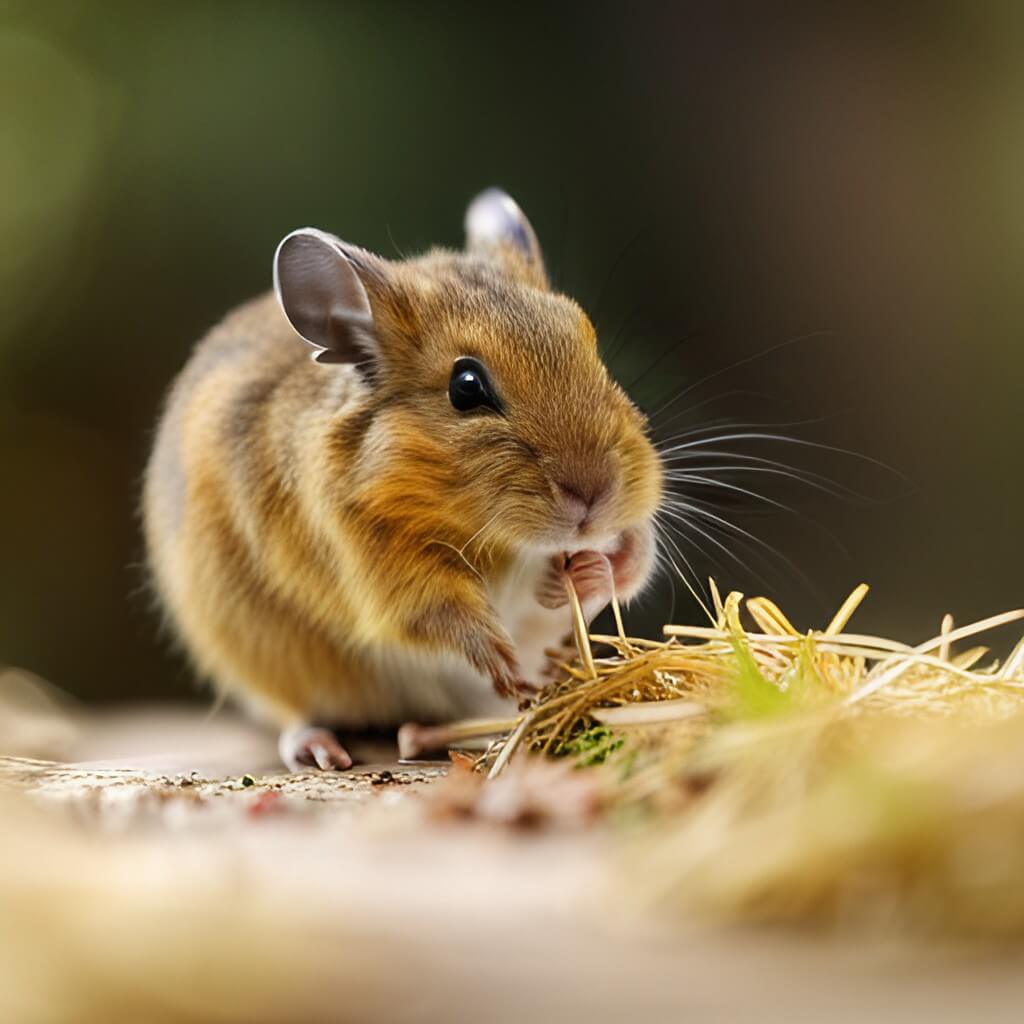In the world of small pets, degus are a delightful choice. These charming rodents, native to Chile, captivate with their sociable personalities and fascinating behaviors. But before you consider bringing one into your home, it's crucial to understand their unique needs, starting with their size. How big is a degu, and how does their size impact their care?
In this article, we'll dive deep into the subject, exploring everything from their physical dimensions to the implications of their size on housing, diet, and overall care. Whether you're a potential degu owner or simply curious about these adorable creatures, read on to discover more about the wonderful world of degus.
How Big Are Degus?
Degus are adorable, pocket-sized pets that charm with their lively personalities and small stature. These little creatures typically grow up to seven inches long, with males tending to be slightly larger than females - they can be around two inches longer. Some degus may even reach up to nine inches in length and weigh approximately two ounces.
While they may be small in size, degus make up for it with their dynamic range of behaviors and social interactions. They are intelligent creatures, known for their ability to form strong bonds with their owners and display an instinctive talent for mimicry, which can make them incredibly entertaining companions.
However, despite their compact size, degus do have specific care requirements. The size of their habitat is crucial - a cage of at least 16 square feet (comparable to the size needed for two Guinea Pigs or Rabbits) is recommended. This allows them enough room to explore, play, and express their natural behaviors.
Within this space, there should be plenty of places for your degu to hide and explore. Providing a variety of chew toys is also important, as these not only offer entertainment but help keep their teeth trimmed and healthy.
Importance of Size
Understanding the size of a degu is crucial, especially for potential and new owners. The size of these small rodents has a significant impact on various aspects of their care:
- Housing Needs: The cage size and setup should be appropriate for the size of your degu. A small degu may get lost or trapped in a cage that's too big, while a large degu might feel cramped in a small cage. Degus need space to roam, play, and exercise, so it's essential to have a cage that accommodates their size.
- Diet: The size of a degu can influence its dietary needs. Larger degus may require more food or certain nutrients compared to smaller ones. Understanding your degu's size can help you provide an appropriate diet that meets their nutritional requirements.
- Handling: Knowing how big your degu is can also guide you in handling them. Smaller degus may be more delicate and require gentle handling, whereas larger degus might be more robust.
- Overall Care: Understanding your degu's size is fundamental to providing the best care possible. It can inform decisions about everything from the size of their exercise wheel to the type of bedding you use.
Understanding the size of a degu is not just about numbers; it's about knowing how to provide the best environment and care for these delightful creatures. So, whether you're a potential owner or already have a degu at home, keep in mind that their size matters in more ways than one.
Degu Growth Patterns
Degus, like many small mammals, experience a rapid growth rate in their early life. From the moment they are born, degus embark on a fascinating journey of growth and development.
Newborn degus typically weigh between 8-17 grams. During the first two weeks of their life, they grow at a rate of about 1-3 grams per day. This growth rate increases from the third week onward, with pups gaining approximately 5-15 grams daily.
As they continue to mature, their growth rate gradually slows down. By the time they reach around 3.5 months, degus usually attain their developmental maturity. This means that by this age, they have grown into their adult size and weight. However, it's important to note that like any other species, individual growth rates can vary based on factors such as diet, genetics, and overall health.
Cage Size
The size of a degu has direct implications on their housing needs. Despite their small stature, degus are active creatures who require ample space to roam, explore, and express their natural behaviors.
A suitable cage for a degu should ideally be at least 16 square feet. This provides enough room for them to move around freely and comfortably. Within this space, there should be areas for your degu to hide, play, and sleep, as well as sufficient room for food and water containers.
A larger cage is not just about providing physical space. It's also essential for the mental well-being of your degu. These intelligent rodents need stimulation and exercise to keep their minds sharp and prevent boredom, which can lead to behavioral issues. A larger cage allows for more toys, tunnels, and climbing structures, which all contribute to your degu's mental enrichment.
Moreover, degus are social animals that often live in groups. If you have more than one degu, a larger cage ensures each individual has enough space to establish their own territory, reducing the likelihood of territorial disputes.
Things to Consider
Just like any species, degus come in a variety of shapes and sizes. While there is an average size range, it's important to note that individual degus can deviate from this due to several factors:
- Genetics: Much like humans, the genes a degu inherits from its parents can greatly influence its size. Some degus might be naturally larger or smaller due to their genetic makeup.
- Diet and Nutrition: The type and amount of food a degu consumes can significantly impact its size. A balanced diet can lead to a healthy weight, while a poor diet may result in a degu being underweight or overweight.
- Environment: The space and conditions in which a degu lives can also affect their size. Degus in spacious, stimulating environments are likely to grow to a healthy size, while those in cramped conditions may not grow as well.
- Health: If a degu experiences health issues, especially during crucial growth periods, it can affect their final size.
Remember, these variations in size are completely normal and part of what makes each degu unique. As long as your degu is healthy and active, there's no need for concern if they're slightly larger or smaller than the average size.







